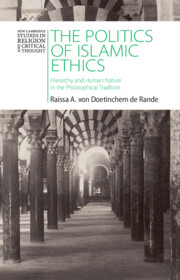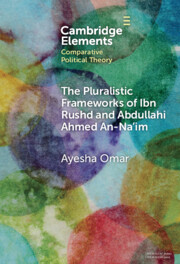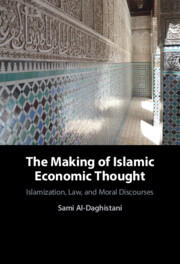Refine search
Actions for selected content:
4 results

The Politics of Islamic Ethics
- Hierarchy and Human Nature in the Philosophical Tradition
-
- Published online:
- 29 June 2025
- Print publication:
- 10 July 2025

The Pluralistic Frameworks of Ibn Rushd and Abdullahi Ahmed An-Na'im
-
- Published online:
- 28 January 2025
- Print publication:
- 20 February 2025
-
- Element
- Export citation

The Making of Islamic Economic Thought
- Islamization, Law, and Moral Discourses
-
- Published online:
- 01 November 2021
- Print publication:
- 06 January 2022
9 - The Problem of Poverty in Islamic Ethics
-
-
- Book:
- Poverty and Morality
- Published online:
- 05 June 2012
- Print publication:
- 20 September 2010, pp 180-203
-
- Chapter
- Export citation
